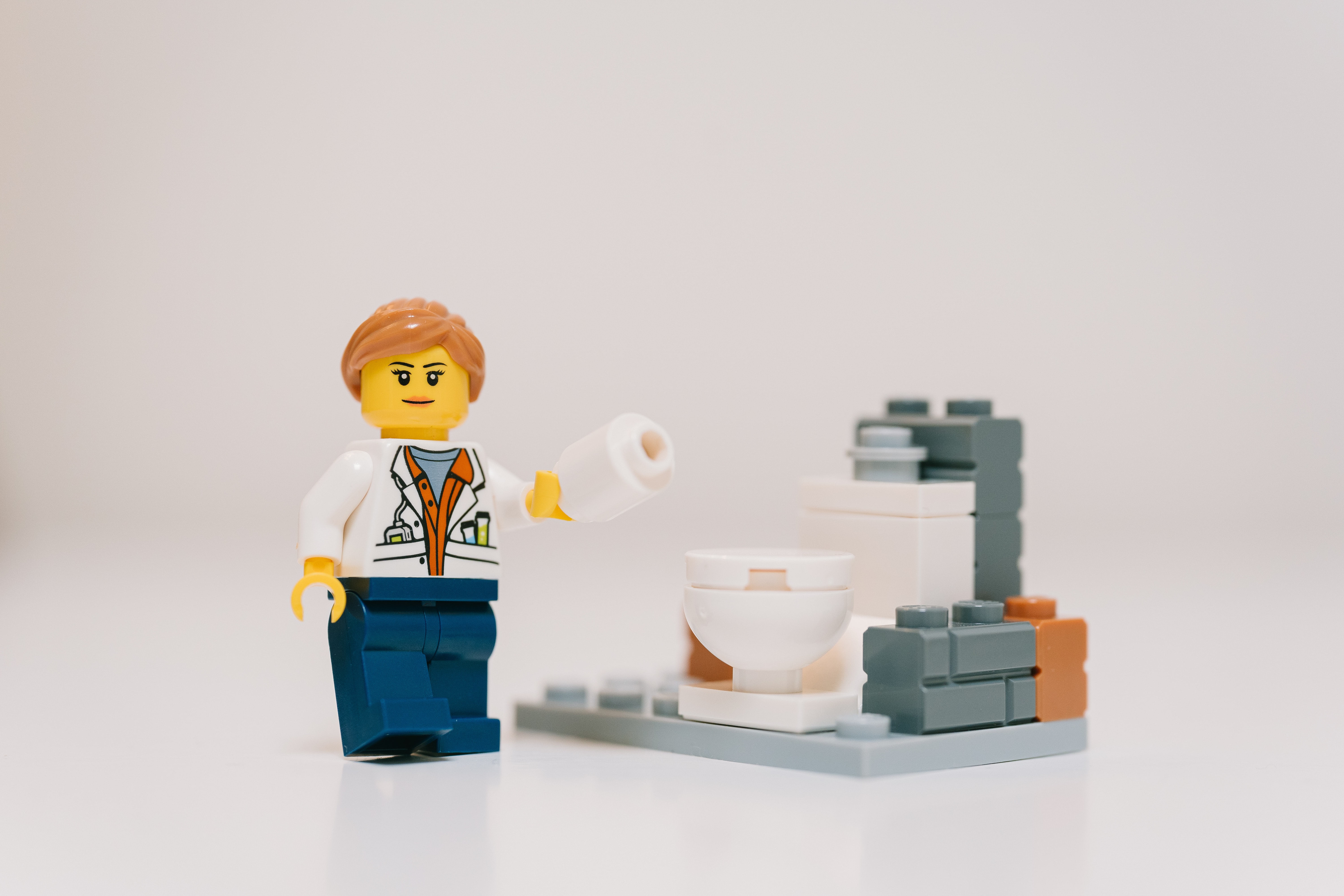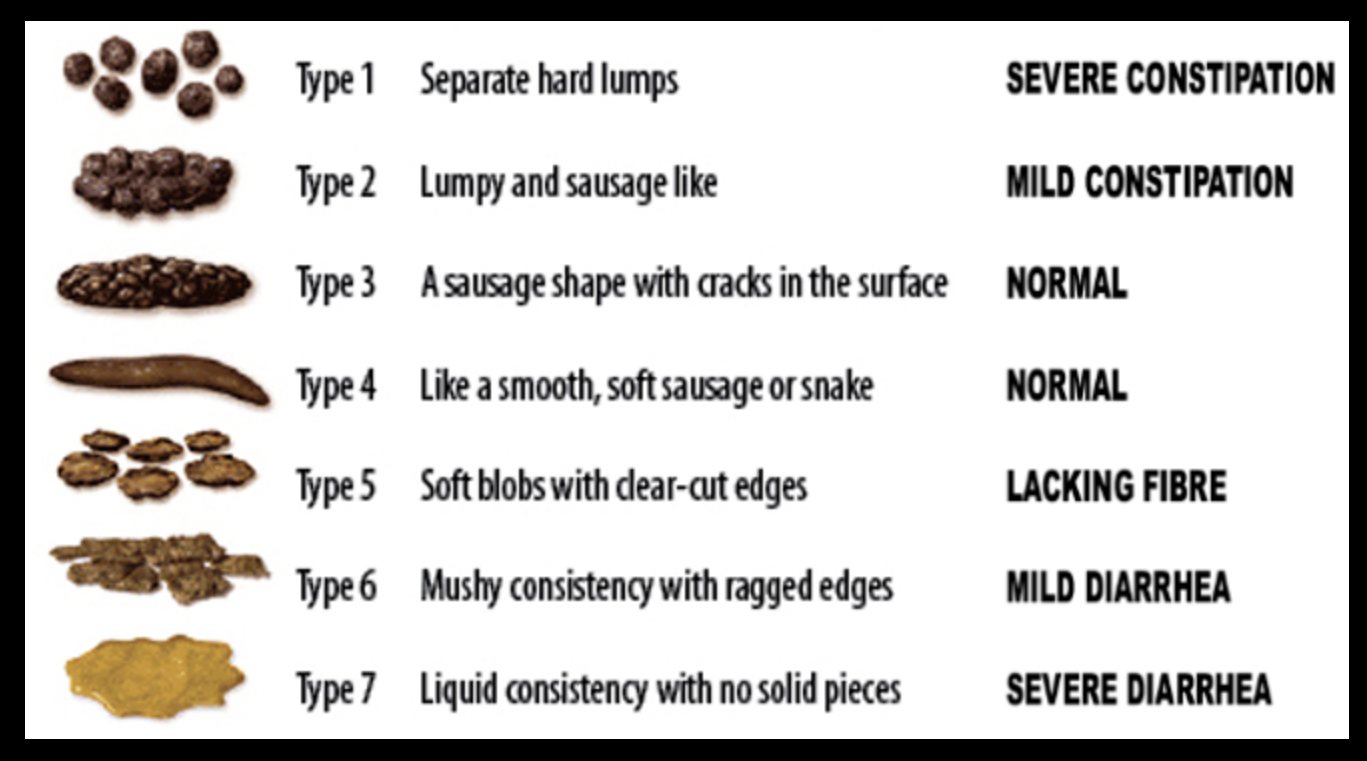What your poop can tell you about your health

This may sound gross and not the topic you want to discuss during your dinner time. However, that quick peek at what’s in the toilet bowl can be very informative as your poop and bowel habits can tell so much about your digestive health.
The main organ that makes up the digestive system are the mouth, esophagus, stomach, small intestine, large intestine, rectum and anus. Helping them along the way are the pancreas, gall bladder and liver. The digestive system start it works by digesting the foods we eat and absorb all the nutrient essential into the blood stream and expel the waste that the body cannot use. It works by pushing food through the intestines by muscle contraction (peristalsis) to move the food from one section to another. It usually takes between 24 to 72 hours to pass through the whole system.
So, what is a healthy stool? Stool is considered healthy if it has soft, formed and typically brownish in color. Stool may be indicative of a health problem if there is a change in the regular bowel habits such as new constipation and diarrhea or change in the color of the stools or any symptoms on the abdomen such as abdominal pain, bloating, distension, nausea, vomiting, changes in the appetite and weight.
Stool consists of 75% of water and 25% is made up from solid consisting of dead bacteria, indigestible food and inorganic substances. The type of stool depends on the time it spends in the colon which can be influenced by diet, fluid intake, lifestyle and medication.

The Bristol Stool Scale classifies stool types into seven categories based on size and texture. Every person will have different stool type, but the important thing is that your stools are soft and easy to pass like type 3 and 4 which typically have sausage-like appearance and remains intact when it is flushes. Type 1 and 2 are hard, lumpy and painful to pass. This indicate that the stool have been sitting in the large colon for too long and indicate constipation. Type 5 and 7 are watery and mushy stools that indicate these stools has spent the least amount of time in the large colon and indicate diarrhea.
Most of the time, minor changes in the color of your stool are due to diet. Healthy stool is usually brown in color. Black- colored stool can be due to medications (such as iron) or could be a sign of bleeding in the upper part of the digestive system such as the stomach or duodenum. Green-colored stool can be normal due to green- colored foods such as vegetable or food pigment. However if you have green-colored diarrhea, it’s likely that your meal moved through your colon too quickly, so the fat-digesting bile didn’t have time to turn brown.
Pale-colored or chalky stool means its lacking bile. If you are passing pale-colored stool, it can indicate blockage in the gallbladder or liver problems. Red-colored stool can be due to an active bleeding in the lower digestive tract. It can also be due to foods such as beetroot, cranberries and tomatoes. Yellow- colored stool that are greasy and stinky is typically a sign of too much fat such as from malabsorption disorder like celiac disease, having your gallbladder removed or taking weight loss medication.
Common cause of constipation are diets with inadequate fiber, fluids, fruits and vegetables. It can also caused by medications such as calcium supplements and antacid, pregnancy, stress, medical illnesses and sedentary lifestyle. Chronic constipation can cause painful defecation and fresh bloods in the stool caused by haemorrhoid or anal fissure. Haemorrhoids or piles are swollen and inflamed veins in the rectum or anus. It is caused by excessive straining when passing motion. Anal fissure on the other hand is painful cracks in the lining of the anus due to passage of hard stool and straining. Lack of fibers in the diet can also cause diverticular disease which are small outpouchings in the muscular wall of the intestine due to high pressure of the lower large intestine. It can get infected or inflamed (called diverticulitis) leading to abdominal pain, bleeding in the rectum, fever, nausea and vomiting.
Diarrhea can be symptoms of various conditions such as infections (gastroenteritis), food poisoning, side-effect from medication (antibiotic), food intolerance, inflammatory bowel diseases (IBD) such as Crohn’s disease and ulcerative colitis and pancreatitis. Depending of the duration of your diarrhea and associated symptoms, your doctor can ascertain possible causes of your diarrhea. IBD causes persistent diarrhea often with red stools, abdominal pain, fever, fatigue, loss of appetite and weight.
If you have bouts of diarrhea or constipation (or alternating between the two) with abdominal pain, bloating, cramping and excess gas, it could indicate irritable bowel syndrome (IBS). However, any new changes in your regular bowel habits such as diarrhea or constipation especially if you are above 50 years of age, you will require further evaluation by faecal occult blood (FOBT) or colonoscopy.
What can you do to keep your digestive system healthy?
- Getting enough fiber in your diets from wholegrain, legumes, fruits and vegetables
- Limit the amount of red meats and processed foods that are high in saturated fats
- Drink plenty of water (about 8 glasses per day) to stay hydrated
- Incorporate probiotics and prebiotics into your diet
- Try the low FODMAP diet if you have IBS. FODMAP stands for fermentable oligosaccharides, disaccharides, monosaccharides, and polyols which are short-chain carbohydrates and sugar alcohols that are poorly absorbed by the small intestine such as certain fruits and vegetable, dairy, nuts and sweeteners which can lead to abdominal cramping, bloating and gassiness
- Eat on schedule at the same time and chew your foods slowly
- Cut down on unhealthy lifestyle such as smoking, excessive alcohol intake, excessive caffeinated and carbonated beverages
- Regular exercise to keep foods moving through your digestive system and reducing constipation and maintain healthy weight
- Reduce stress level
If you would like to know more about gut health, come down and talk to our doctor for more information.



